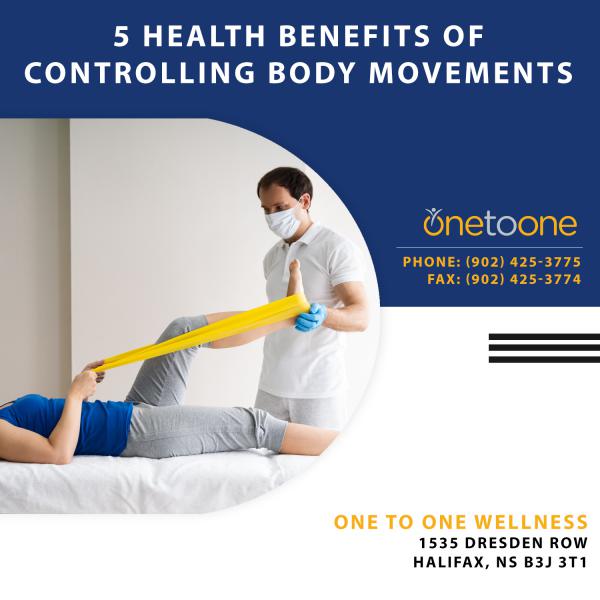
If you’re working 9-5 or sitting for long periods in front of the computer and don’t get to exercise that much, you’re not alone.
Sedentary behaviors are common among Canadians. But, it’s never too late to change habits and take control of your movements.
Emotions can impact movements. When you’re sad or exhausted, you tend to lose interest and move slowly. When you’re anxious, you may find yourself moving in a hurry.
But according to a study, it can work the other way around too. Movements can also stimulate the brain. Here are more of the benefits of controlling body movements.
- Avoids injuries
When the body moves beyond its natural range, injuries can occur. Older individuals or seniors are more likely to hurt their bones with sudden movements.
Controlling movements by ensuring that chores and activities are executed properly can help you prevent injuries and accidents. Depending on your lifestyle or profession, physiotherapists can work with you to customize an exercise program and guide you during executions.
For example, they can show you how to safely land from a jump or protect your posture if you’re sitting for an extended period.
- Strengthens muscles
Regular exercises help boost muscle strength. You put your muscles to work and that helps increase their power.
This allows you to perform more strenuous activities without getting exhausted too fast. You also help your body burn calories and balance its fat and muscle ratio.
Boosting muscle strength can also help improve your posture and minimize back pain. You’ll improve your flexibility and balance and reduce the risks of injuries.
Even simple stretching can already help increase flexibility.
- Improves bone health
Like muscles, bones also become stronger with exercise. Physical inactivity can lead to bone mass loss.
With regular movements and exercises, bones become denser. Since bone is living tissue, exposing it to force can help grow more bones.
Aging can cause bones to weaken. Regular exercises can help you maintain good bone health. To maximize the benefits your bones can enjoy from exercising, be sure you’re allowing your body enough rest.
Over-exercising or a mismatch in exercise routines may also damage the bones. Consult with a physiotherapist to ensure you’re performing the right exercises safely.
- Stimulates the brain
According to a study with students as participants, even a 10-minute walk can already lead to significant improvements in cognitive functions.
Exercises can boost brain functions. As you get moving, your heart rate increases, and so is the amount of oxygen pumped into the brain.
Movements also stimulate the production of certain hormones, which can help make the environment more conducive for brain cell growth.
A study explored the antidepressant effects of running. According to it, the activity helps promote cell growth in the hippocampus area of the brain, which plays a role in learning and memory.
- Boosts heart health
Physical activity and exercises can also help improve heart health. Exercise programs can be structured to focus on improving heart conditions.
Regular exercises help increase the heart’s ability to pump blood to the lungs and the rest of the body. Blood vessels in the heart widen, oxygen levels increase, and more waste products get excreted.
Engaging in physical activities can also help reduce the risks of developing coronary heart diseases. It helps increase good cholesterol levels, manage blood sugar and insulin levels in the body, reduce obesity with a reduced-calorie diet, and maintain a healthy weight.
Control body movements to improve life quality
Controlling body movements not only helps you stay fit. It also helps you perform better mentally and physically.
When you execute exercises the right way, you also prevent injuries and allow yourself to do more challenging programs later on.
Pay more attention to your movements. Increase your range of motion. Do more for yourself and the people that matter to you.





